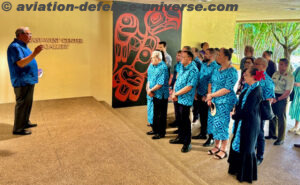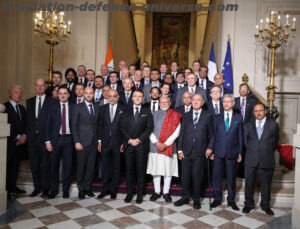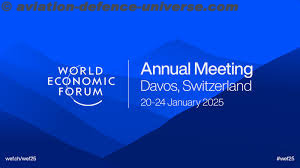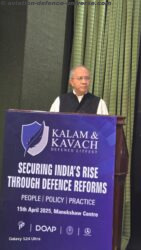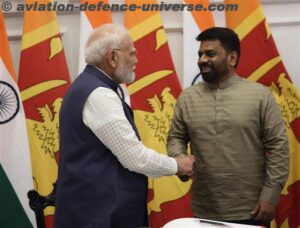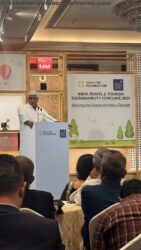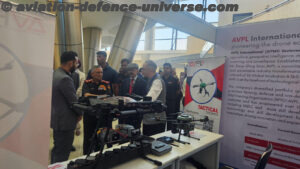New Delhi. 31 December, 2015. India’s global stature was on the ascent in 2015, with the last twelve months witnessing the country’s robust engagement in the world’s leading multilateral fora, including UNGA, G20, BRICS, SCO, ASEAN and EAS.
UNGA
The 70th session of the UNGA was special in many ways as we joined in the 70th anniversary celebrations of the world body and robustly backed the adoption of the Sustainable Development Goals (SDGs) at the SDG summit. Supporting the adoption of Agenda 2030, PM Modi outlined steps taken by India in reducing poverty and proactively joining the world in promoting green development. Fast-tracking reform and expansion of the UNSC was the cross-cutting theme of PM Modi’s address at different events related to the UNGA, including the summit of leaders of G4 countries.
Sustainable development, promotion of renewable energy and climate justice were other refrains in PM’s interventions. In a separate address to the UN Peacekeeping Summit on September 28 in New York, PM Modi pitched for a greater role for troop-contributing countries in the decision-making process related to peacekeeping operations and unveiled new contributions by India. These include, among other things, additional battalions of up to 850 troops in existing or new operations, additional three Police units with higher representation of female peacekeepers, and additional training for peacekeepers at facilities in India and in the field.
Making an eloquent case for making the UNSC more credible and representative by including aspiring members, to address the challenges of the 21st century, EAM’s address at the UN also underlined the need for achieving the Security Council reform “within a fixed time frame.”
BRICS
The BRICS summit in July saw the operationalisation of two key India-backed initiatives, including the New Development Bank (NDB) and $100 billion Contingent Reserve Agreement (CRA), which reinforced the collective BRICS commitment to reconfiguring the global financial architecture. The NDB, with an initial start-up capital of $50 billion, and a veteran Indian banker as its first President, is expected to approve its inaugural investment project in 2016, and is a game-changer in bolstering infrastructure development in the global South.
PM Modi made a robust pitch for fast-tracking IMF quota reforms to enable a larger say for developing and emerging economies in top global financial institutions of governance, imparting a push to the ongoing project of recasting the global financial system. We also backed the intra-BRICS strategic economic partnership which will upscale trade and investment among emerging economies, and positioned them as the future hub of economic growth. India made valuable contributions by making a compelling case for enhancing civil society interaction among BRICS countries as PM Modi unveiled 10 proposals for bolstering the BRICS, which includes, among others, the holding of an annual BRICS trade fair, the setting up of a Railway Research Centre, cooperation among supreme audit institutions, a BRICS digital initiative, the BRICS Agricultural Research Centre, a BRICS Sports Council, and an annual BRICS Sports Meet. PM Modi also forcefully advocated urgent reform and expansion of the UNSC, with a permanent seat for India in the reformed body.
SCO
India’s elevation from an observer to a full-member at the SCO summit in Ufa on July 10 was a milestone that will provide more ballast to its Connect Central Asia policy and promote an integrated and connected Eurasia to become one the most dynamic regions in the world. India offered support for buttressing physical and digital connectivity and backed the International North South Transport Corridor. India also focused on enhancing security cooperation to combat terrorism and the SCO’s key role in stabilisation process in Afghanistan.
G20
The Prime Minister’s participation in the G20 summit in Turkey was marked by important contributions to shape the G20 agenda for restoring global economic growth and creating an inclusive global financial architecture. India backed the G20’s outcome on developing ambitious country-specific investment strategies, and its proposals for alternative financing structures, such as asset-based financing, and simple and transparent securitization. The PM underlined that his government has zero tolerance for both corruption and black money. In the aftermath of the Paris terror attacks, PM also laid out a 10 point plan to combat terrorism, underscoring the need to deepen cooperation against terrorism financing, including through targeted financial sanctions and more effective counter-terrorism financing tools, while calling for countries to join hands to isolate states that support and sponsor terrorism.
COP21
At COP 21 in Paris, India played a key role in the final Agreement ensuring that its own concerns, as well as those of other developing countries, were suitably addressed. The Agreement recognized the principle of Common but Differentiated Responsibilities, expanding the term to include ‘in the light of different national circumstances.’ It has also specific provisions on climate finance and mitigation actions that indicate developed country obligations, although much work remains to be done.
Speaking at the Plenary, PM expounded on India’s ambitious INDCs which include reducing emissions intensity per unit GDP by 33-35% per cent of 2005 levels by 2030, and ensuring that 40 % of our installed capacity for electricity would be from non- fossil fuels. PM underlined the needs of the developing world, of lifting billions of people into prosperity, which would require advanced countries leaving enough carbon space – the need for climate justice. The PM also launched the International Solar Alliance, co-chaired by India and France, to promote greater use of solar energy. All countries lying between the Tropics of Cancer and Capricorn are eligible to be members of the ISA. India would be hosting the initiative in the National Institute of Solar Energy and announced US $30 million for the secretariat infrastructure.
Diaspora & Consular, Passport Services
The 25-million strong NRI and PIO populations abroad have become a brain trust and bridge-builders between the mother country and their adopted homelands. With their potential role in the unfolding of a national renaissance, diaspora outreach has become the signature diplomatic style of PM Modi and the Indian government’s unstinting commitment to their welfare.
The diplomatic calendar in 2015 fittingly began with the holding of the 13thPravasi Bhartiya Diwas in Gandhinagar, which was attended by over 4,000 delegates. This year, it was a special moment as it coincided with the 100th anniversary of the return of Mahatma Gandhi, the exemplar NRI, from South Africa to India. The celebration of the Indian community abroad that was staged with pomp and panache last year at MSG in New York acquired more colour and vibrancy this year, with PM Modi addressing rapturous crowds across hemispheres, including Paris, Berlin, Toronto, London, San Francisco, Dubai, Kuala Lumpur and Singapore. In all these places, PM Modi feted their successes in their adopted countries and encouraged them to contribute to ongoing programmes for national resurgence, including ‘Swachh Bharat’, ‘Make in India’, Skill India and ‘Clean Ganga’. To make it easier for diaspora to visit India and feel more connected, PM announced the merging of NRI/ OCI status, lifelong visas to OCIs, and doing away with police registration upon their visits to India. The government eased diaspora investment in India for funding flagship schemes of the government, the Swachh Bharat Kosh and Clean Ganga Fund. The pilot launch in 5 GCC countries of MADAD – an online grievance monitoring system for the diaspora which allows for time bound redressal, tracking monitoring and feedback on issues – also elicited a huge response.
To facilitate engagement with the diaspora, and to assist business, educational and tourist travelers, the Government has taken a slew of initiatives to simplify and improve passport, visa and consular services. The passport services became the embodiment of service excellence, having achieved the unique distinction of becoming the only Mission Mode Project to receive three ISO certifications (9001:2008, 20000: 2011, 27001: 2013) together. The facts tell their own story. A strategic reserve of 1 crore passport booklets has been created to ensure that shortage of booklets never becomes a constraint on timely issue of passports. More than 10,00,000 passport-related applications were processed and over 1,00,000 Common Service Centres across the country co-opted for filing passport applications online. The average passport issuance time (excluding police verification process) has been brought down to under 21 days for 96% of the applications. The government expedited operationalisation of new Passport Seva Kendras (PSK) in the north-eastern states of India— Meghalaya, Manipur, Mizoram and Sikkim besides the one already functional in Assam. PSKs in the remaining north-eastern states viz. Arunachal Pradesh, Nagaland and Tripura will be set up in the coming months. EAM issued special instructions to all Indian Missions abroad to scale up quality and speed in delivering consular, passport and visa services. Several visa outsourcing contracts were finalised to better utilise the limited manpower resources of Missions.
Finally, one of the most pressing concerns of the Government in the last twelve months has been to ensure the safety and security of Indians entangled in conflict situations abroad. India evacuated not just its own citizens from conflict situations in Syria and Libya but also those of many other neighbouring and other countries. Operation Rahat in Yemen was a major operation, involving chartered flights and ships, with the Indian Navy and Air Force pitching in to rescue 4741 Indians and 1947 foreigners stranded in the war zone. Underlining the government’s undying commitment to aiding Indians abroad in distress, all these operations entailed wide-ranging coordination between different civilian and military agencies, under the direct leadership of EAM and Minister of State in MEA.
India takes special pride in it’s ascending diplomatic graph, with the world looking at India as a source of hope and renewal to address a host of cross-cutting challenges. Our relations with countries of the neighbourhood and with major power centres have been consolidated and we have been successfully able to remap our ties with the emerging regions of the world, including Africa, Central Asia and West Asia. With such robust multi-layered achievements in 2015 and India’s global role becoming more evident in every multilateral fora, India’s foreign policy and diplomacy are set to cross new milestones and open new vistas for the nation.






































